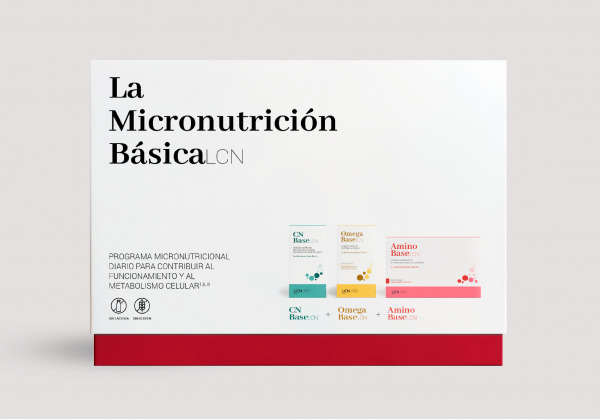Pregnancy is a very special stage for women in which diet is extremely important. Given that the fetus has no protection against a deficient maternal diet, the baby’s development depends exclusively on the nutrients ingested by the mother.
In addition, the mother consumes more energy and nutrients (macronutrients and micronutrients) during pregnancy, as a new life is growing inside her. Micronutrients affect the maternal ability to conceive and carry a pregnancy to term. According to studies, the micronutrients that receive that greatest attention during pregnancy include vitamins A, D, E, folates, B12, B6 and C, iron, zinc, iodine, copper and selenium, as well as choline and the essential fatty acids (such as omega-3 and omega-6).
It is not always easy to consume all of these nutrients in adequate amounts, particularly in the case of morning sickness or frequent vomiting, or simply when the expectant mother becomes more discriminating in her food preferences.
The role of the mother’s microbiota (that of the gut, vagina and mammary glands) is also important during pregnancy and breastfeeding. This influences the child’s development and immune system, as well as its long-term health. The newborn acquires its microbiota from the mother at birth and during breastfeeding. Therefore, everything the mother does to take care of herself during pregnancy will be crucial for development of the optimal health of her child’s microbiota. Probiotics and prebiotics during this period can help to establish a healthy microbiota in the mother and, by extension, in her child.
In addition to a varied and balanced diet, studies show that supplementary intake of folic acid increases maternal folate levels, which helps reduce the risk of neural tube defects such as spina bifida. The beneficial effect is achieved with daily intake of 400 μg of folic acid (preferably L-methylfolate) at least one month before conception and up to three months afterwards.
Similarly, choline is especially important during pregnancy, as studies show that average choline intake by pregnant women is lower than that recommended by EFSA, and low levels have been linked to a greater risk of neural tube defects and higher levels are considered a protective factor.
Infertility problems in Spain have increased significantly in recent years,* with nearly 17% of couples of reproductive age estimated to have difficulties conceiving. The most important possible causes for this rise are physiological factors factors such as age (fertility in women declines at 35, with this becoming more pronounced after 40); problems or alterations of the reproductive organs; nutritional factors such as deficiencies of certain active vitamins and key minerals; environmental factors uch as exposure to toxins and endocrine disruptors; and sociodemographic factors. In addition, stress, sedentary habits, excess weight, or having an underlying pathology like diabetes can complicate fertility.
Assisted reproduction is the most common solution for infertility, with the nutritional aspect often being overlooked.
After age, diet, is recognized as one of the most important factors affecting the overall and reproductive health of both parents and the development of the embryo and fetus. Malnutrition due to excess or deficient intake of macronutrients and micronutrients, both quantitatively and qualitatively, is associated with significant increases in reproductive risks, including infertility, fetal structural anomalies, and diseases in adulthood.
Maintaining a balanced and varied diet, adequate micronutrient intake, an active and non-sedentary lifestyle, as well as controlling stress, are the first measures recommended for improving fertility.
Gernand AD, Schulze KJ, Stewart CP, West KP Jr, Christian P. Micronutrient deficiencies in pregnancy worldwide: health effects and prevention. Nat Rev Endocrinol. 2016;12(5):274–289.
Zeisel SH, da Costa KA. Choline: an essential nutrient for public health. Nutr Rev. 2009;67(11):615–623.
Shaw GM, Finnell RH, Blom HJ, Carmichael SL, Vollset SE, Yang W, Ueland PM.Choline and risk of neural tube defects in a folate-fortified population.Epidemiology. 2009 Sep;20(5):714-9.
https://www.diariosur.es/sociedad/salud/aumenta-infertilidad-espana-20190116121213-nt.html



